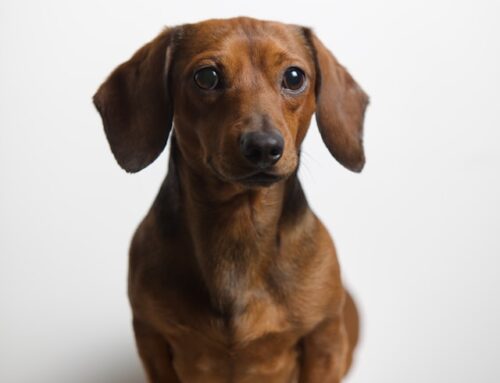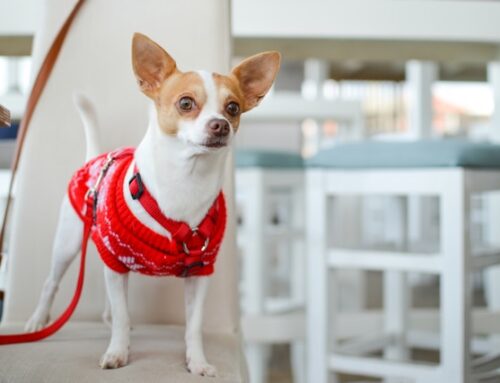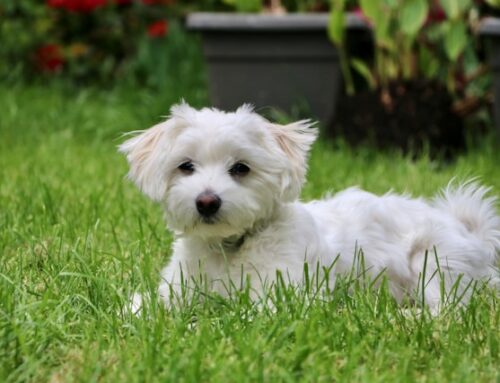Overview
Introduction: Breed of Dog Bichon
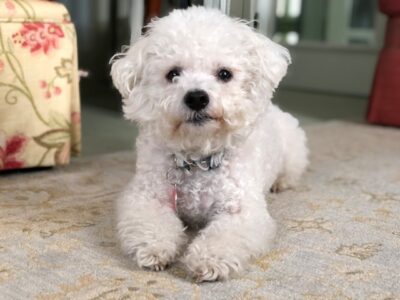
Are you a dog lover looking for a furry companion filled with charm and charisma? Look no further than the delightful breed of dog Bichon, also known as the teddy bear dog.
These adorable dogs, descended from Bichon type dogs, have captured the hearts of many with their endearing traits. With origins tracing back to European nobility and later popularized by Spanish seamen, Bichon breeds offer a fascinating blend of history and personality.
In this comprehensive guide, we'll take you on a journey through the enchanting world of Bichon breeds, exploring their origins, care, training, and beyond. Despite their petite size, these dogs have a rich history that includes being bred from a water spaniel, contributing to their unique characteristics and appeal. If you're interested in learning more about the breed of dog Bichon, this guide provides valuable insights into their history and care.
Brief Overview of Bichon Dogs
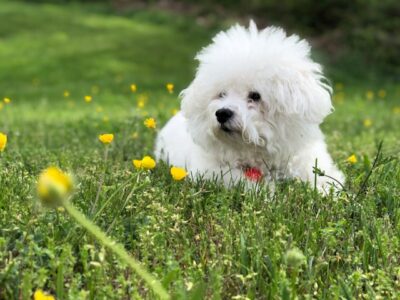
Bichon dogs, including the Bichon à Poil Frisé, have captured the hearts of many with their irresistible charm and affectionate nature. Originating from various regions, including the Mediterranean and Europe, these breeds have a rich history dating back centuries.
Known for their fluffy coats and friendly demeanor, Bichons make wonderful companions for families and individuals alike, earning them the endearing nickname of teddy bear dog. Descended from small dogs in the Canary Islands, Bichons gained recognition and popularity through the efforts of French breeders. If you're considering adding a breed of dog Bichon to your family, this guide provides valuable insights into their history and care.
They were eventually recognized by kennel clubs like the American Kennel Club (AKC), initially placed in the Miscellaneous Class before gaining full breed status. The Bichon Frise also contributes to the popular Shichon breed, a cross between a Bichon Frise and a Shih Tzu, known for their charming personalities and teddy bear-like appearance.
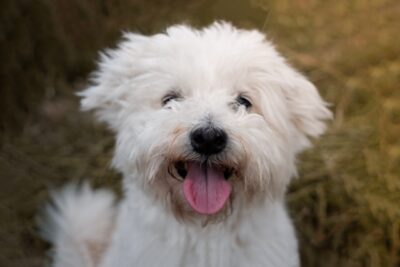
Origin and History
The origins and history of Bichon dogs, particularly the Bichon Frise, are steeped in rich heritage and centuries-old lineage. These beloved dog breeds, including the Bichon Frise and others, have captivated enthusiasts worldwide with their endearing traits and delightful personalities.
Originating from the Canary Islands, Bichon dogs were cherished by European nobility and sailors alike, eventually gaining recognition as popular breeds among dog lovers. Descended from a water spaniel and other breeds, Bichons were treasured for their companionship and charm.
Recognized by organizations like the American Kennel Club (AKC), Bichon breeds were initially classified in the Miscellaneous Class before being grouped into the Non-Sporting Group. Despite facing challenges such as those posed by World War conflicts, Bichon dogs persevered, thanks to the dedication of breeding stock enthusiasts and organizations like the AKC and the Orthopedic Foundation. If you're interested in learning more about the breed of dog Bichon, this guide provides valuable insights into their history and care.
In France, the Société Centrale Canine also played a significant role in the recognition and promotion of Bichon breeds, including the Bichon Frise. Through the efforts of dedicated breeders and organizations, these small poodle breeds continue to thrive today, cherished for their cheerful disposition and affectionate nature.
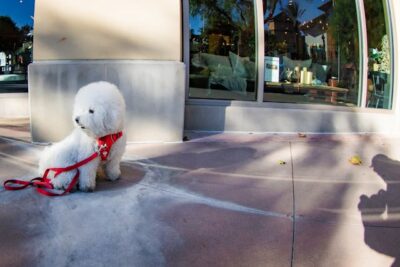
Physical Characteristics
The physical characteristics of Bichon dogs, including those of the Bichon Frise breed, are distinctive and charming. These small dog breeds are known for their fluffy, curly coats, which require regular grooming to maintain their signature appearance.
With their expressive eyes and perky ears, Bichons exude an endearing charm that captures the hearts of many. Despite their compact size, they are generally healthy dogs and are recognized for their longevity. The word "Bichon" itself is believed to derive from Old French, indicating a small dog.
Bichons are high-energy breeds that thrive on regular exercise and mental stimulation, making them well-suited for active households. As descendants of ancient lapdogs, Bichon dogs retain their playful and sociable nature, earning them a cherished place in the homes and hearts of dog lovers worldwide, with organizations like the Frise Club of America dedicated to preserving and promoting their breed standards. If you're interested in learning more about the breed of dog Bichon, this guide provides valuable insights into their physical characteristics and care.
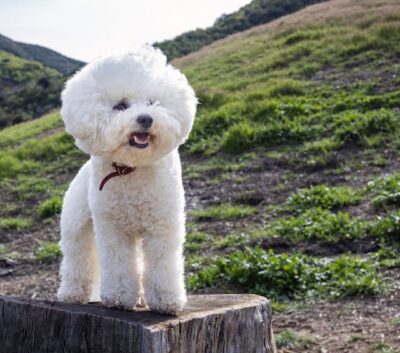
Popular Bichon Breeds
Bichon Frise
The Bichon Frise, renowned for its enchanting personality and fluffy white coat, stands as one of the most beloved dog breeds worldwide. Bichon Frise puppies, from their earliest days, captivate with their friendly demeanor and joyful disposition, traits that persist into their mature years.
Originating from the Canary Islands, these endearing companions have a rich history that dates back centuries. Recognized by esteemed organizations such as the American Kennel Club (AKC) and the Bichon Frise Club, these dogs have gained prominence as cherished pets and faithful companions.
Their origins in the Canary Island and subsequent journey to full recognition in the AKC's Miscellaneous Class highlight the enduring appeal and enduring charm of Bichon Frises.
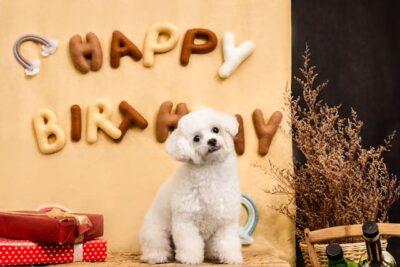
Bolognese
The Bolognese, while often mistaken for the Bichon Frise, is a distinct dog breed known for its charming personality and captivating appearance. Originating from the same breed group as the Bichon Frise, the Bolognese shares similar traits such as a fluffy white coat and friendly demeanor.
These dogs are cherished companions, beloved for their affectionate nature and loyal companionship. With their rich history and endearing qualities, the Bolognese has gained popularity as a delightful dog breed among families and individuals alike.
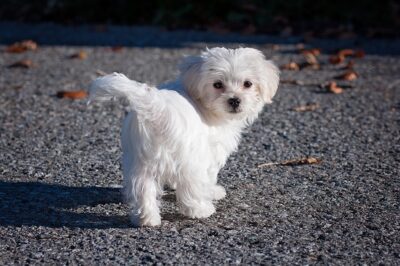
Maltese
The Maltese, a beloved member of the Bichon family, is adored for its elegant appearance and gentle temperament. Renowned for its long, silky white coat and expressive eyes, the Maltese exudes charm and sophistication.
Originating from the Mediterranean region, this breed has a rich history dating back thousands of years, often depicted in art and literature. With their affectionate nature and playful demeanor, Maltese dogs make wonderful companions for individuals and families alike. Recognized by kennel clubs worldwide for their beauty and grace, Maltese dogs continue to capture hearts as one of the most popular Bichon breeds.
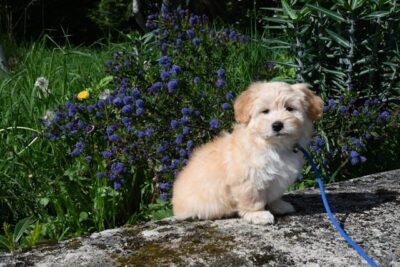
Havanese
The Havanese, a cherished member of the Bichon family, delights with its lively personality and luxurious coat. Originating from Cuba, the Havanese has a storied history as a beloved companion of Cuban aristocracy. With their friendly demeanor and adaptable nature, Havanese dogs quickly became popular among families and individuals seeking a devoted and affectionate pet.
Renowned for their intelligence and sociability, Havanese dogs excel in various roles, from cherished family members to therapy and agility dogs. Recognized by kennel clubs worldwide for their charm and versatility, the Havanese continues to captivate hearts as one of the most beloved Bichon breeds.
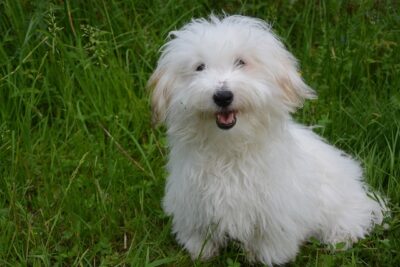
Coton de Tuléar
The Coton de Tuléar, a delightful member of the Bichon family, is celebrated for its distinctive cotton-like coat and cheerful disposition. Originating from Madagascar, this breed has a fascinating history as a cherished companion of Malagasy royalty.
With their playful and affectionate nature, Cotons de Tuléar quickly endeared themselves to families seeking a loyal and loving pet. Renowned for their adaptability and sociability, Cotons excel as both loving companions and therapy dogs. Recognized by kennel clubs worldwide for their unique charm and gentle temperament, the Coton de Tuléar continues to win hearts as one of the most beloved Bichon breeds.
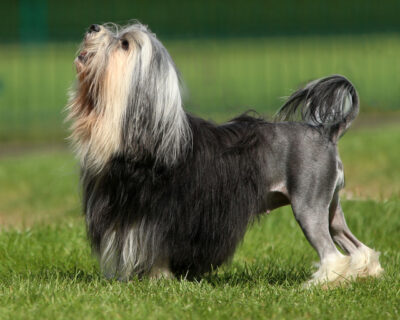
Löwchen
The Löwchen, affectionately known as the "Little Lion Dog," is a cherished member of the Bichon family, prized for its elegant appearance and lively personality. Originating from Europe, particularly France and Germany, the Löwchen has a rich history as a companion to nobility and royalty. With their playful yet gentle nature, Löwchens quickly became popular as affectionate family pets and loyal companions. Renowned for their intelligence and affectionate demeanor, Löwchens thrive in various roles, from loving household pets to skilled therapy dogs.
Recognized by kennel clubs worldwide for their charm and versatility, the Löwchen continues to captivate hearts as one of the most beloved Bichon breeds. Despite facing challenges such as being nearly extinct after World War II, Löwchens have endured and maintained their place as cherished companions.
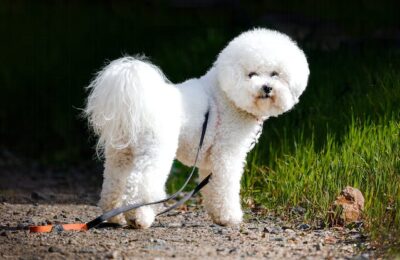
Understanding Bichon Temperament
Affectionate Nature
Understanding the temperament of Bichon dog breeds unveils their inherently affectionate nature, which distinguishes them as cherished companions among dog enthusiasts.
Bichon breeds, including the Bichon Frise, Maltese, Havanese, and Coton de Tuléar, are known for their outgoing and friendly dispositions, traits that persist as they mature.
Their affectionate nature extends not only to their human families but also to other dogs, making them delightful additions to multi-pet households. Bichon breeds thrive on companionship and are known for their loyalty, forging strong bonds with their owners and forming lasting friendships with other dogs.
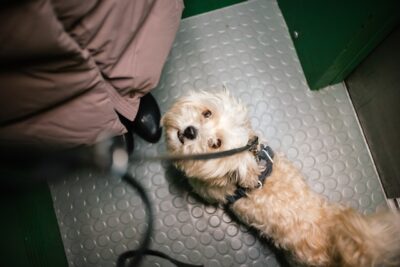
Playfulness and Energy Levels
Understanding Bichon dog breeds' temperament regarding playfulness and energy levels sheds light on their lively and engaging nature, distinguishing them as active and cheerful companions.
Bichon Frise dogs, along with other breeds like Maltese and Havanese, exhibit a zest for life and a love for playtime. Their cheerful attitude and abundant energy make them great playmates for both humans and other dogs, fostering positive interactions and socialization.
However, pet owners need to provide adequate outlets for their energy to prevent undesirable behaviors, such as excessive barking, and ensure a harmonious living environment for both pets and humans.
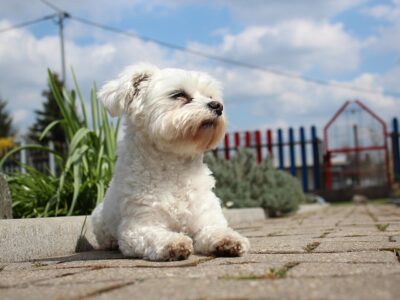
Socialization Needs
Understanding Bichon dog breeds' temperament regarding socialization needs underscores their inherent sociability and adaptability, especially in environments like apartment living. Bichon breeds, such as the Bichon Frise, Maltese, Havanese, and Coton de Tuléar, thrive on interaction with humans and other dogs alike.
Adequate socialization, coupled with positive training methods, is crucial to ensure they develop into well-adjusted and confident companions. Regular exposure to various environments, people, and animals helps them build positive associations and develop the social skills needed for harmonious interactions throughout their lives.
By prioritizing socialization and employing effective training methods, owners can foster a balanced and sociable temperament in their Bichon breeds, enhancing their overall well-being and quality of life.
Bichon Care and Grooming
Dietary Requirements
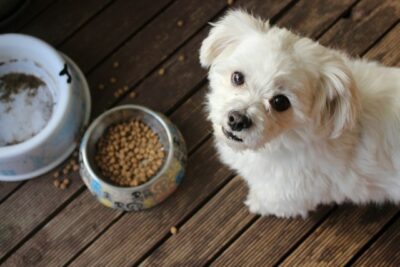
Proper dietary care is essential for maintaining the health and well-being of Bichon breeds. Their small size and active nature necessitate a balanced diet rich in nutrients to support their energy levels and overall health.
Bichons benefit from high-quality dog food tailored to their specific needs, with ingredients that promote digestion, muscle development, and a healthy coat. Owners should also ensure that their Bichons have access to fresh water at all times and monitor their food intake to prevent overeating or obesity, which can lead to health issues.
Additionally, consulting with a veterinarian can help determine the best diet plan for individual Bichons based on factors such as age, activity level, and any existing health conditions.
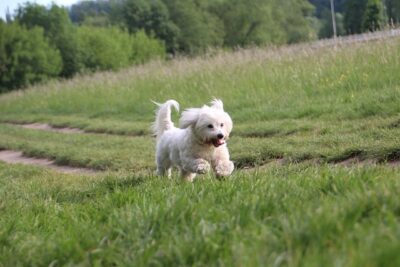
Exercise Regimen
Bichon breeds, known for their active nature, require a consistent exercise regimen to maintain their health and well-being. Daily exercise not only helps them burn off excess energy but also promotes muscle tone, mental stimulation, and overall vitality.
Activities such as walks, play sessions, and interactive games are excellent ways to keep Bichons physically and mentally engaged. Engaging in regular exercise also helps prevent boredom and reduces the likelihood of undesirable behaviors, such as excessive barking, which can occur when these energetic dogs are under-stimulated.
Additionally, incorporating socialization with other dogs and breeds during outdoor activities can further enrich their exercise experience and foster positive interactions.
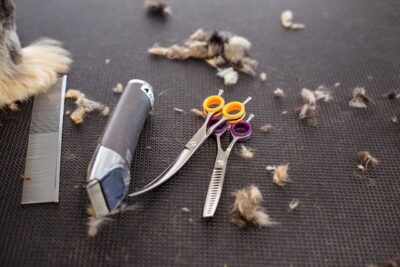
Coat Care and Maintenance
Maintaining a Bichon's fluffy coat requires regular grooming and attention to detail. Pet owners may opt to enlist the services of a professional groomer to ensure their shaggy dog's coat remains clean, tangle-free, and neatly trimmed.
Routine coat care includes brushing to prevent matting and remove loose fur, as well as bathing with gentle, dog-friendly shampoos. Additionally, regular trimming of the Bichon's coat, particularly around the ears, paws, and sanitary areas, helps maintain their signature fluffy appearance while promoting overall hygiene. By prioritizing coat care and grooming, pet owners can keep their Bichon looking and feeling their best.

Health Considerations
When considering the health of Bichon breeds, several conditions warrant attention to ensure their well-being and longevity. Patellar luxation, a condition affecting the knee joint, is relatively common in these dogs and may require medical intervention.
Additionally, Bichons are prone to bladder infections and bladder stones, necessitating regular monitoring and preventive measures. Ear infections can also occur due to their fluffy ears, requiring diligent cleaning and care.
Pet owners should be vigilant for signs of these health conditions and consult veterinarians promptly for diagnosis and treatment. By addressing health concerns early and implementing appropriate preventive measures, Bichon breeds can enjoy a healthy life expectancy and thrive as beloved companions.
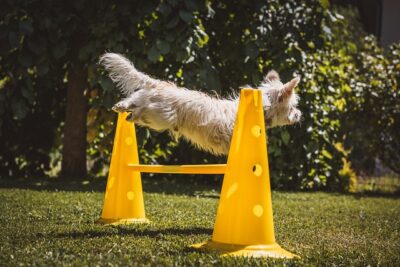
Training Bichon Breeds
Basic Obedience Training
Training Bichon breeds in basic obedience is often a rewarding experience due to their innate intelligence and eagerness to please. These small, active dogs are generally easy to train, and their early success in learning commands can be encouraging for both the pet owner and the dog.
Using positive reinforcement methods and consistency, pet owners can effectively teach Bichons basic obedience skills such as sit, stay, come, and heel. Starting training sessions early and keeping them short and engaging can help maintain the dog's interest and maximize learning potential. With patience and dedication, pet owners can lay a solid foundation for their Bichon's obedience and behavior.
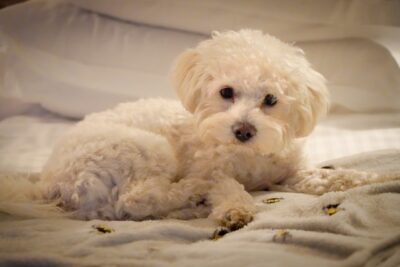
Housetraining Tips
Housetraining Bichon breeds, known for being small and easy to train, can be a rewarding experience for pet owners seeking to integrate them seamlessly into family life, particularly in apartment living situations.
Consistency and positive reinforcement are key to success in housetraining these affectionate companions. Establishing a regular schedule for feeding, bathroom breaks, and playtime helps Bichons understand expectations and develop good habits.
Additionally, praising and rewarding desired behaviors while addressing any accidents promptly without scolding can prevent undesirable habits like bark excessively. With patience and persistence, housetraining Bichon breeds can be a smooth and successful process, fostering a harmonious living environment for both pets and their families.
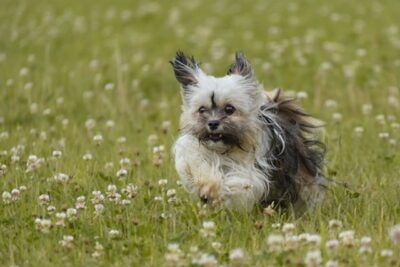
Behavioral Challenges and Solutions
Training Bichon breeds can present unique behavioral challenges, despite their generally friendly and eager-to-please nature. Some Bichons may exhibit behaviors such as barking excessively, particularly in response to stimuli or when left alone. Addressing these challenges requires patience, consistency, and positive reinforcement techniques.
Providing mental stimulation through interactive toys and regular exercise can help alleviate boredom and reduce barking tendencies. Additionally, crate training and desensitization exercises can help Bichons become more comfortable with being alone and decrease separation anxiety-related behaviors. By understanding their individual needs and employing effective training methods, pet owners can successfully navigate behavioral challenges and foster a harmonious relationship with their Bichon companions.
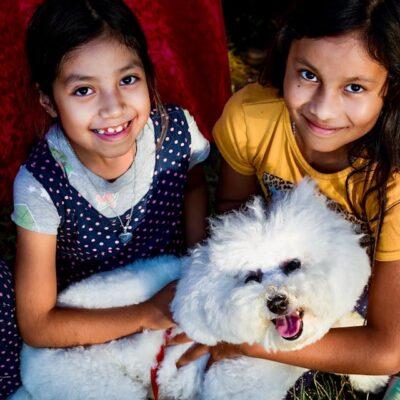
Living with a Bichon: Lifestyle Considerations
Suitability for Families
Living with a Bichon involves considering lifestyle factors, particularly their suitability for families. Despite being active dogs, Bichons have a shaggy appearance and belong to the category of small breeds. These charming companions typically thrive in family settings, where they can receive plenty of attention and affection.
Their playful nature makes them well-suited for households with children, as they enjoy interactive play and companionship. However, potential owners should be prepared to provide regular grooming and exercise to meet the needs of these delightful pets. With their friendly demeanor and adaptability, Bichons can enrich the lives of families and make wonderful additions to the home.
Apartment vs. House Living
Living with a Bichon involves considering lifestyle factors, including the choice between apartment and house living. While Bichons are generally adaptable and can thrive in various living environments, they are well-suited for apartment living due to their small size and moderate exercise needs. Apartments can provide a cozy and comfortable space for these affectionate companions, as long as they receive regular walks and indoor playtime to stay active.
However, house living also offers benefits such as a yard for outdoor activities and more space for the Bichon to explore. Regardless of the living arrangement, Bichon owners should ensure that their furry friends receive proper care, exercise, and attention to maintain a happy and fulfilling lifestyle.
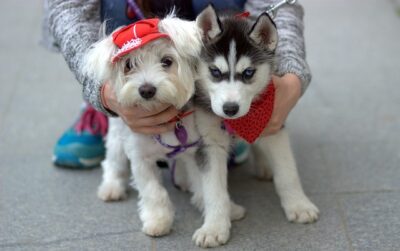
Compatibility with Other Pets
Living with a Bichon involves considering lifestyle factors, including their compatibility with other pets. Bichons are generally sociable and can get along well with other animals, including dogs and cats, especially if they are properly socialized from a young age. Their friendly and playful nature often makes them excellent companions for other pets in the household.
However, introductions should be gradual and supervised to ensure a positive relationship. Additionally, Bichons may exhibit some territorial behaviors, so it's essential to establish clear boundaries and provide each pet with their space and resources. With patience, training, and supervision, Bichons can coexist harmoniously with other pets, enriching the household with their cheerful presence.
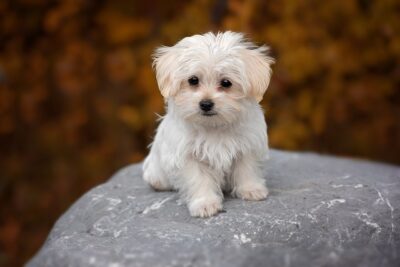
Bichon Breeding and Adoption
Responsible Breeding Practices
Responsible breeding practices for Bichons involve prioritizing the health, temperament, and well-being of the dogs. This includes conducting health screenings for genetic conditions such as patellar luxation and maintaining proper care and socialization for both parent dogs and puppies.
Ethical breeders also ensure that their breeding stock is of high quality, adhering to breed standards, and strive to find suitable homes for the puppies they produce, emphasizing responsible ownership and lifelong commitment.
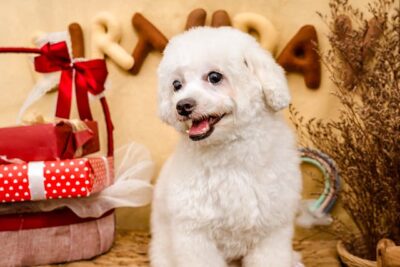
Bichon Clubs and Communities
International Bichon Associations
International Bichon associations serve as valuable resources for Bichon enthusiasts worldwide, fostering a sense of community and sharing knowledge about the breed. These clubs often organize events, such as dog shows and social gatherings, where Bichon owners can connect, exchange experiences, and celebrate their love for these charming dogs.
Additionally, membership in such associations provides access to educational materials, breed-specific information, and opportunities for networking with fellow Bichon lovers.
Online Forums and Social Groups
Online forums and social groups dedicated to Bichon breeds offer a virtual community for enthusiasts to connect, share experiences, and seek advice on various topics related to Bichon care and ownership. These platforms provide a space for members to ask questions, discuss training techniques, share grooming tips, and even arrange meet-ups or playdates for their Bichons.
By joining these online communities, Bichon owners can access a wealth of knowledge, support, and camaraderie, enhancing their experience of being part of the Bichon community.
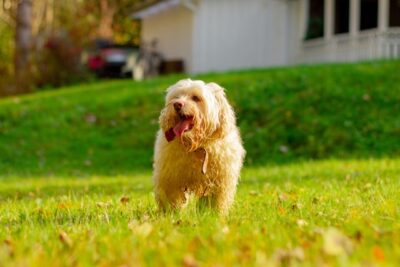
Bichon Rescue and Rehabilitation
Supporting Bichon Rescue Organizations
Supporting Bichon rescue organizations is a meaningful way to give back to the breed and help dogs in need find loving forever homes. Whether through donations, volunteering, or fostering, every contribution makes a difference in the lives of Bichons in need.
Fostering and Volunteering Opportunities
If you have the time and resources, consider fostering or volunteering with a Bichon rescue organization. Fostering provides temporary care for dogs awaiting adoption, while volunteering allows you to lend a helping hand at events, fundraisers, and outreach efforts.
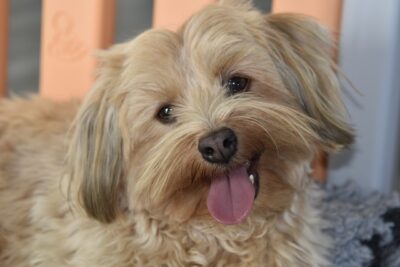
Bichon Myths vs. Facts
Common Misconceptions about Bichon Breeds
In the realm of Bichon breeds, common misconceptions often circulate, overshadowing the true nature of these delightful dogs. One prevalent myth is that Bichons are hypoallergenic, but in reality, no dog breed is entirely hypoallergenic, although some individuals may produce fewer allergens than others.
Another misconception is that Bichons are high-maintenance due to their fluffy coats, but with regular grooming and care, they can be relatively easy to maintain. It's essential to dispel these myths to ensure prospective owners have accurate information when considering a Bichon as a pet.
Dispelling Myths with Facts and Research
In the world of Bichon breeds, separating fact from fiction is crucial to understanding these beloved dogs accurately. One common myth is that Bichons are purely ornamental, but they possess a rich history of serving various roles, including as companions and working dogs.
Additionally, while some may believe Bichons are prone to excessive barking, proper training and socialization can mitigate this behavior, showcasing their adaptable and trainable nature.
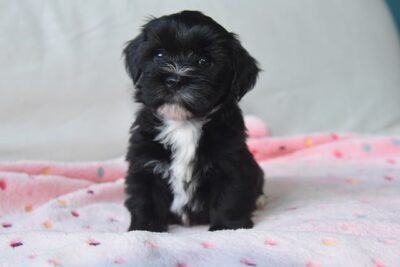
Future Trends in Bichon Breeding and Ownership
Emerging Bichon Varieties and Crossbreeds
As the world of dog breeding evolves, we're witnessing an emergence of new Bichon varieties and crossbreeds alongside the traditional Bichon Frise dogs and Bichon Frise puppies.
Breeders are experimenting with blending Bichons with other breeds to create unique mixes that combine the desirable traits of both breeds. This trend reflects a growing interest in creating diverse options for potential owners while maintaining the beloved characteristics of Bichon breeds.
Technological Advances in Bichon Care
In the realm of Bichon breeding and ownership, technological advancements are shaping the future of care for these beloved companions. From wearable health monitors to smart feeding systems, innovative technologies are offering Bichon owners new tools to monitor their pets' health and well-being more effectively.
These advancements are expected to streamline care routines, enhance communication between owners and veterinarians, and ultimately contribute to the overall health and happiness of Bichon dogs and their owners. If you're a breed of dog Bichon owner looking to enhance your pet's care, staying informed about these technological advancements can help you provide the best possible care for your furry friend.
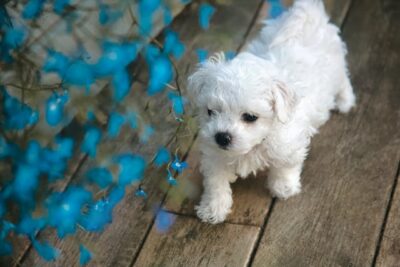
Summary: Breed of Dog Bichon
In this comprehensive guide to Bichon dog breeds, we've explored the captivating world of these delightful companions, from their rich history to their charming personalities. Originating from European nobility and later popularized by seafaring adventures, Bichon breeds have endured the tests of time, evolving into beloved pets worldwide.
From the enchanting Bichon Frise to the elegant Maltese and lively Havanese, each breed brings its unique blend of history, personality, and endearing traits to the table. Despite their petite size, Bichons have a rich history dating back centuries, contributing to their unique characteristics and appeal.
We've delved into various aspects of Bichon care and ownership, from dietary requirements to exercise regimens, coat care, and health considerations. Responsible ownership ensures that these delightful dogs live long, healthy lives, enriching the lives of their owners with their unwavering loyalty and boundless love.
Whether through adoption, fostering, or supporting rescue organizations, there are numerous ways to contribute to the well-being of Bichons in need. By dispelling myths, staying informed about breed-specific characteristics, and embracing technological advancements in care, we can ensure a bright future for Bichon breeds and their owners.
As we continue to navigate the evolving landscape of Bichon breeding and ownership, let us cherish the timeless charm, companionship, and joy that these delightful dogs bring into our lives, enriching our homes and hearts with their enduring presence. If you're considering adding a breed of dog Bichon to your family, this guide provides valuable insights into their world.
Conclusion: Breed of Dog Bichon
In conclusion, Bichon breeds, including the beloved Bichon Frise, originated from European nobility and have captivated dog lovers for centuries. From the enchanting Bichon Frise to the elegant Maltese and lively Havanese, each breed brings its unique history, personality, and endearing traits.
With origins tracing back to European nobility, Bichon breeds have evolved into beloved pets worldwide. Their cheerful dispositions and affectionate nature make them ideal companions for families and individuals alike.
Owning a Bichon requires responsibility, including proper care, grooming, training, and attention to health. Responsible ownership ensures these delightful dogs, descended from other dog breeds, live long, healthy lives.
Various ways, such as fostering, or supporting rescue organizations, allow for contributing to the well-being of Bichons in need. Staying informed about breed-specific characteristics, dispelling myths, and embracing technological advancements in care are crucial steps for a bright future for Bichon breeds and their owners. If you're considering adding a breed of dog Bichon to your family, remember to approach ownership with care and dedication.
Let us cherish the timeless charm, companionship, and joy that these delightful dogs, descended from Bichon, bring into our lives, enriching our homes with their unwavering loyalty and boundless love. If you're considering adding a Bichon Frise, Coton de Tulear, Havanese, or Maltese puppy to your family, explore our selection of puppies for sale in Florida and surrounding areas: Bichon Puppies, Coton de Tulear Puppies, Havanese Puppies, and Maltese Puppies.
Frequently Asked Questions (FAQs): Breed of Dog Bichon
1. What are the different Bichon breeds?
- The Bichon Frise is the most well-known among the Bichon breeds. Other breeds include the Maltese, Havanese, Bolognese, Coton de Tuléar, and Löwchen.
2. What distinguishes the Bichon Frise from other Bichon breeds?
- The Bichon Frise is renowned for its enchanting personality and fluffy white coat. It originated from the Mediterranean region and is cherished for its playful and affectionate nature.
3. Are there significant differences in the personalities of different Bichon breeds?
- While all Bichon breeds share similar traits such as friendliness and playfulness, each breed may have its own distinct personality characteristics. For example, the Maltese is known for its gentle temperament, while the Havanese is valued for its liveliness.
4. How do I choose the right Bichon breed for me?
- Consider factors such as temperament, size, grooming needs, and energy level when choosing a Bichon breed that suits your lifestyle and preferences.
5. Where did Bichon breeds originate?
- Bichon breeds originated from various regions, including the Mediterranean and Europe. They were favored companions of European nobility and sailors.
6. Do all Bichon breeds have shaggy coats?
- While many Bichon breeds, such as the Bichon Frise and Coton de Tuléar, have shaggy coats, not all Bichon breeds share this characteristic. Some breeds, like the Maltese, have long, silky coats.
7. Are bladder stones a common health issue among Bichon breeds?
- Bladder stones can be a concern for many dogs, including some Bichon breeds. It's essential to monitor their diet and ensure they stay hydrated to reduce the risk of developing bladder stones.
8. Should I groom my Bichon breed myself or hire a professional groomer?
- The grooming needs of Bichon breeds vary, but many owners opt to enlist the services of a professional groomer, especially for breeds with dense or curly coats. Regular grooming is essential to keep their coats healthy and free of mats.
9. Can Bichon breeds be left alone for long periods?
- Bichon breeds are known for their sociable nature and may experience separation anxiety if left alone for extended periods. It's essential to provide them with companionship and mental stimulation to prevent behavioral issues.
10. Are Bichon breeds commonly associated with organ grinders?
- While Bichon breeds have historically been depicted alongside organ grinders, this association is primarily a cultural stereotype and does not reflect the true nature of these beloved companions.
11. What are some common health issues to watch out for in Bichon breeds?
- Bichon breeds may be prone to health issues such as patellar luxation, bladder stones, and ear infections. Regular veterinary check-ups and proper care can help mitigate these risks and ensure their well-being.

